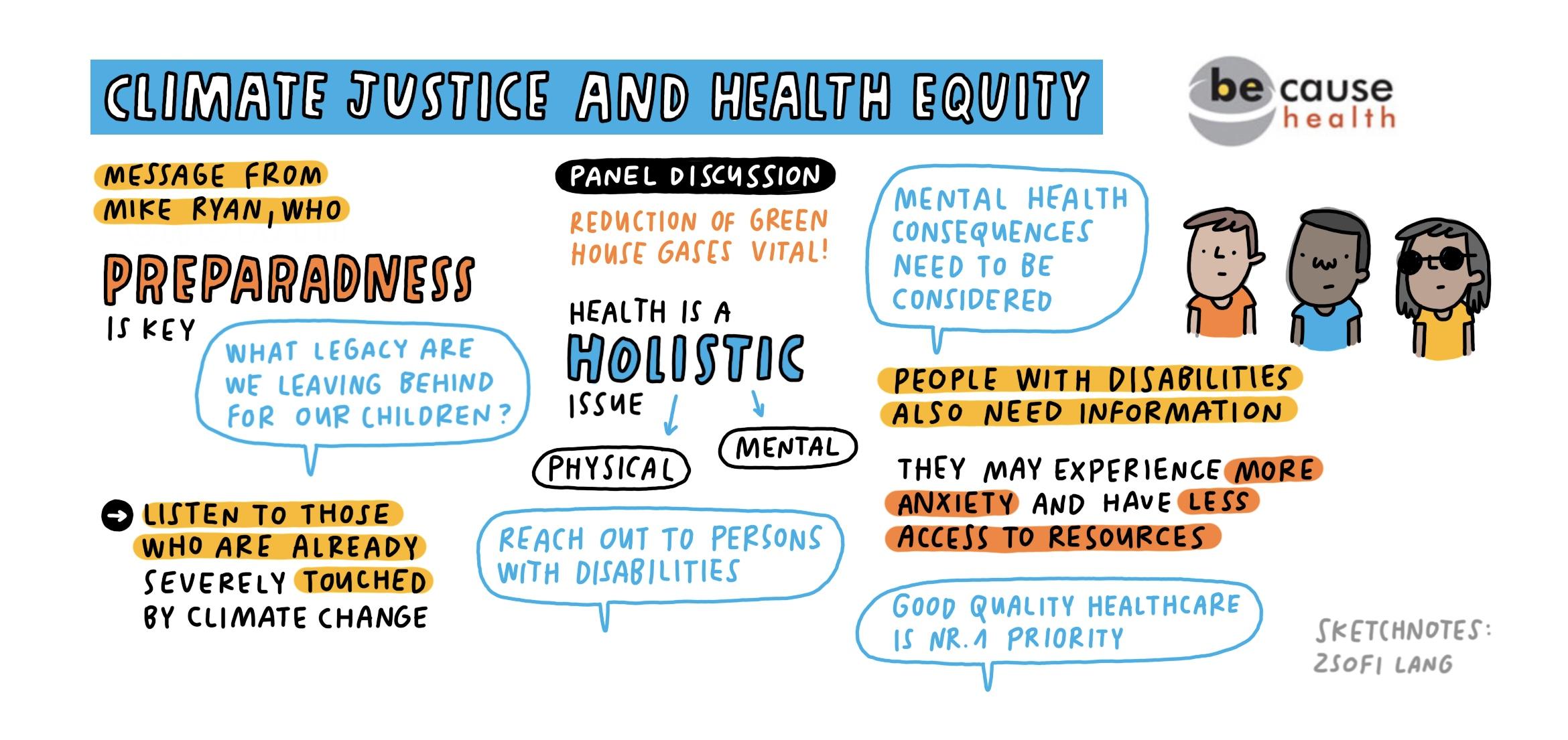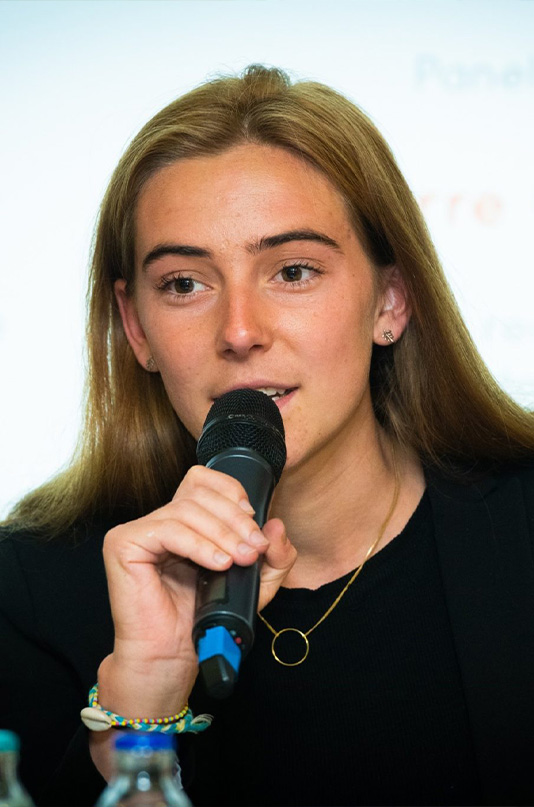
During the final ‘only women but very diverse’ panel discussion, all lessons learned and key messages from two days of conference came together.
Carine Thibaut from the Climate Coalition Belgium, a Belgian network of 90 organisations working on climate, invites the (global) health sector to join the climate movement. The impact of climate change and pollution on the health of people and on health systems is enormous. The climate, environment and health sector should fight together to ensure global warming and the use of fossil fuels are stopped. This engagement is logical if we depart from a holistic approach to health, health as well-being not only as the absence of disease. The fight against global warming thus becomes a fight for more health and well-being worldwide.
Elies Van Belle sees many opportunities within the Be-cause health network to work together, although we know this doesn’t come naturally. We’ll have to invest in collaboration. The strength of the network depends on the engagement and will of its members. Elies feels a lot of energy to take the topic of climate emergency and health forward within the network: the launch of a Be-cause health working group on Climate and Health, the integration of the topic in the work of the other Be-cause health working groups, reaching out to other networks and other sectors and last but not least providing input for the Belgian policy on development cooperation and health.

"I shall listen more [...], put in place and put forward the voices of people who are already affected [by the climate emergency], and those who have the solutions. Because there are many [...] experts in this world we don’t invite to listen to."
Elham Youseffian points out that climate anxiety can have severe consequences on the mental health of people, and especially young people, poor people and people with disabilities. For them, the impact of global warming is even more uncertain, and they have less opportunities to find help. People with disabilities are often not included in climate actions, policies and programmes, although they represent 15% of the world’s population. Elham invites the climate movement to reach out to people with disabilities and consult with them from the very beginning, listen to them and include them in all actions and programmes.
Adélaïde Charlier attended the COP26 of November 2021 in Glasgow. Our world leaders have definitely failed their exam. The urgency behind climate change and its consequences aren’t felt yet. We are not taking the destruction of humanity seriously. To find solutions, we have to listen to those people that are already affected by the consequences of the climate emergency today, to young people and to those people who for decades have been living their lives without harming the environment, the indigenous people.
The floor is finally given to Virginia Talens. In the Philippines, the consequences of the climate emergency are already being felt strongly, and the existing health systems fail to deliver access to qualitative health care to people. In other words, we have to act now! We cannot wait until something comes out of the COPs, seeing that they are dominated by the polluters. We should create a parallel group of people, join forces to empower the victims of the climate emergency, to give them the chance to let their voices be heard. And ask others to amplify their voices. We should help each other. Climate change is real and is ravaging the Philippines. The problems in Low and Middle Income Countries (LMICs) are long-standing and intense, and are worsening by the climate emergency. It is important that public fora, such as this Be-cause health conference let the voices of the victims be heard. We should urge polluters to stop polluting, and assist those affected by the climate emergency in their recovery.
